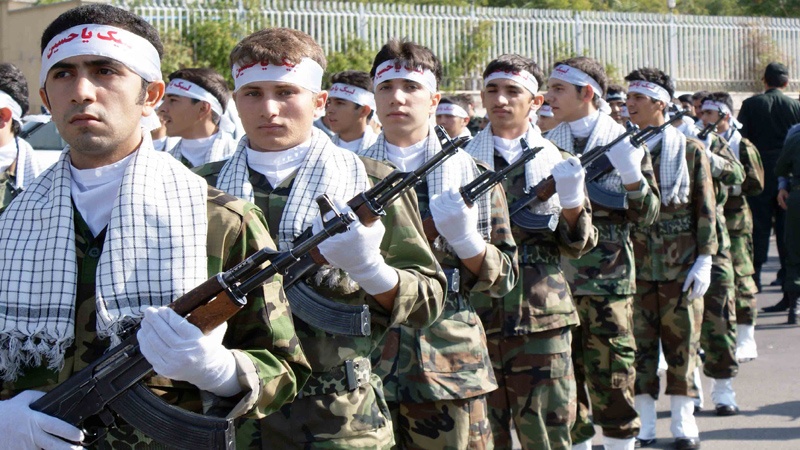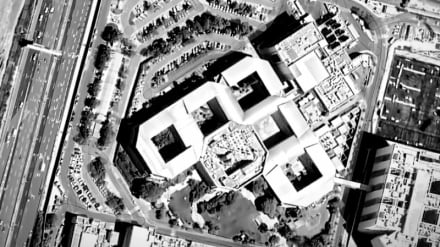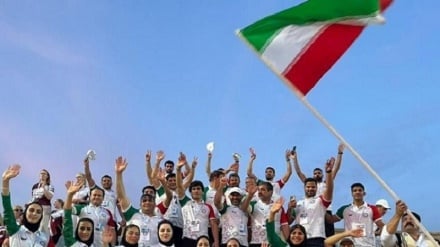Basij, Iran’s dynamic popular mobilization volunteer force
Among the dynamics of the Islamic Revolution that triumphed in Iran in 1979 under the leadership of Imam Khomeini (God bless his soul), was formation of the Sazman-e Basij-e Mostaza’afin or the “Organization for Mobilization of the Oppressed.
The foresight of that Sage of the Age had clearly seen the road that lay ahead for the Islamic Republic, the mechanisms required for its progress, its sovereignty, its national solidarity, its spirituality, its territorial integrity, and the possibility of threats and plots of Global Arrogance. Thus, in order to solidify the masses and nullify the threats and plots, he called for mobilization of dedicated citizens into an organized volunteer force, having a ubiquitous presence in all social spheres and capable of defending the country, its religious principles, and the values of the Islamic Revolution. Indeed, the Basij, has ever since played crucial roles in the defence and progress of the Islamic Republic, as was evident in their service at the battlefronts as formidable auxiliary forces during the 8-year war imposed by the US through Saddam in the 1980s, and is obvious today by their role in development projects throughout the country, including those pertaining to science and technology. Stay with us for a special feature on the occasion of Basij Week, which is held every year in Iran.
The holy Qur’an teaches Muslims to be alert and ready all the time, in order to ward off unforeseen attacks and plots. Prophet Mohammad (blessings of God upon him and his progeny), set a personal precedent in this regard by mobilizing dedicated and devout persons, in order to be on guard against the plots of the Godless. This is jihad against the evil, and could be waged through various means, such as through money, through writing of books and articles, through speeches, and last but not the least, through weapons if the need arises, For instance, the holy Qur’an tells us in ayah 60 of Surah al-‘Araaf
“Prepare against them whatever you can of [military] power and war-horses, awing thereby the enemy of Allah, and your enemy, and others besides them, whom you do not know, but Allah knows them.”
In this ayah the word “power” means all powers that boost the people’s moral including economic, cultural and political. The Basiji or the volunteer forces in Iran are a prime example of the power described by the holy Qur’an. The other important point in this ayah is providing of defence equipment for the defenders. It does not mean weapons to kill fellow Muslim or other human beings, as the Godless group called Takfiri or Daesh is doing in Syria, Iraq, Afghanistan, Pakistan, and elsewhere, including the poor people of Yemen, who are being daily targeted by bombs and missiles by Saudi Arabia, the godfather of all Takfiri terrorists. The weapons should be of a deterrent nature in order to prevent aggression, and discourage would-be aggressors, rather than bring about mass destruction.
Throughout history, the struggle between right and wrong has always existed, and according to the holy Quran; the faithful ought to be on guard against Satan, their archenemy and its devilish followers. The oppressors, the usurpers, the exploiters, the promoters of promiscuity and depravity in society, the seditionists, the terrorists, and their agents, including those who are ready to sell their homeland to Global Arrogance, try to create an atmosphere of fear and intimidation among the people. Thus, in order to immunize the society and to ensure its sound and healthy growth, God Almighty says to the faithful in ayah 75 of Surah Nisa:
“Why should you not fight in the way of Allah and the abased men, women, and children, who say, ‘Our Lord, bring us out of this town whose people are wrongdoers, and appoint for us a guardian from You, and appoint for us a helper from You’?”
In view of the message of this ayah, the Basij resistance force was set up and has been defending the achievements of the revolution and Islamic ideals of people for the past 37 years. Those who are acquainted with the developments of Iranian society well know that Basij in Iran is not an exclusive military, or for that matter a political, a cultural, a scientific, a social, and an academic organ, but it is a collection of all these values rolled into one.
To be more precise, Basij is broadly organized into the Imam Ali Brigades and the Imam Husain Brigades, which mostly deal with security threats. The Subgroupings of the Basij include the Basij-e Danesh-Amouzi or Pupil Basij, the Basij-e Daneshjouyi or the Student Basij, Basij-e Danishgahi or the University Basij, Basij-e Edari or the Public Service Basij, Basij-e Asha’eri or the Tribal Basij, Basij-e Asnaf or the Basij of the Guilds, and the Basij-e Karegaran or the Labour Basij. Today, as per the vision of the Father of the Islamic Revolution, it is an organization with over 20 million members.
The Leader of the Islamic Revolution, Ayatollah Seyyed Ali Khamenei, in his speech to senior commanders of Basij on Wednesday November 23 in Tehran on the occasion of Basij Week, lauded the yeoman services of the Basij forces, and said it stands far above any factional tendencies. He said it has proved to be a guiding force for the society in view of its diversified performances in different spheres. For instance, the cultural and scientific activities are among the most important missions of Basij with university professors and students as its members. In addition, presence in the deprived regions of the country and the welfare projects run by the Basij in various fields including medical, agricultural, and reconstruction, are among its effective activities.
Imam Khomeini believed that the Basij, as the nucleus of the people’s resistance against the arrogant, are not limited to the geographical boundaries of Iran, and stressed that the resistance nucleus should be formed all over the world and be mobilized against both the East and the West. His vision is being materialized today as the Iranian model is being emulated in many regional countries, such as Lebanon, Syria, Iraq, Yemen, Bahrain, Gaza, and Afghanistan. In this regard, Chief of Staff of the Iranian Armed Forces, Major-General Mohammad Hussain Baqeri described as practical the idea of establishing the Muslim world’s Basij, on the models of Iran’s Basij. In a message released on Wednesday, November 23, on the 37th anniversary of foundation of Basij in Iran, he said it is feasible to form the Islamic world’s Basij with the inspiration coming from Iran’s Basij Forces. Hailing the Iranian Basij as a “miracle of the Islamic Revolution” and a “historic move to meet the country’s vital needs”, he enumerated the services that Basij members have rendered to the country over the past decades.
Meanwhile, Iran’s Basij Commander, Brigadier-General Mohammad Reza Naqdi, in reference to developments on the international scene, said on the advent of the annual Basij Week, that within the next 20 years the US will collapse, and before that in less than ten years the Zionist entity will no longer be on the map of the world. He said that according to the analysis made by the behind-the-stage and shadow decision-makers of the US establishment, the United States will collapse in 2035 and I think that it is an optimistic analysis as this will take place much earlier."
Analysts also believe that with the wave of Islamic awakening in the region that has seen people in Muslim lands becoming more and more aware of their Islamic birthrights, the spurious state called Saudi Arabia set up by the British in 1932, is expected to collapse well before its godfathers, Israel and the US cease to exist.
Today, thanks to the mobilization of popular forces on the model of Iran and as shown during the 33-day Israeli war by Lebanon’s legendry anti-terrorist movement, the Hezbollah, the government of Syria has begun to defeat and drive out the Takfiri terrorists. The same is true in Iraq, where the popular mobilization forces, formed on the instruction of Grand Ayatollah Seyyed Ali Sistani, after having liberated Tikrit, Ramadi, and Falluja, are now all set to liberate Mosul. In Yemen, it is the resistance of the popular Ansarallah forces that have made the country to withstand the 20-month criminal bombardment by Saudi Arabia. Thus, it is faith in God and people’s support, the two specific characteristics of the Basij forces, whether in Iran or abroad, which made them stand firmly against aggression.
AS/ME



